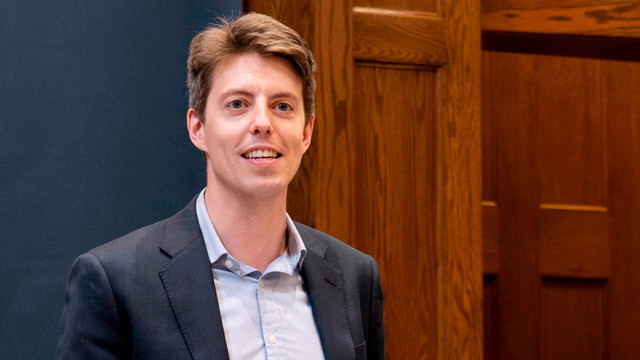Research
Examining the structure behind constitutional law
At first glance, constitutional law might seem like a battle of ideologies — but for Professor Riley Keenan, deeper structural questions demand our attention. As a scholar of federal courts and constitutional law, Keenan examines the rules and processes that shape how public law litigation plays out in federal courts.
“I’m less focused on individual amendments and more interested in the framework that governs constitutional decision-making,” he explained. His work tackles big-picture procedural issues — like whether courts can issue nationwide injunctions or how precedent should work when it comes to interpretive methods like originalism.
One of his current projects explores whether the Supreme Court is attempting to entrench its interpretive methods — such as originalism — as binding precedent for future courts. “That’s something we should approach with caution,” he said. “Regardless of your perspective, we should be able to live within a pluralistic legal system that allows for reasonable disagreement.”
Keenan’s scholarship has also addressed remedies — particularly federal courts’ authority to block presidential actions or issue broad relief. His opinion diverged from the Court’s recent decision restricting the use of universal injunctions, but he’s unfazed. “We’re all entitled to our perspectives,” he said with a smile.
“There has to be some sort of organizing principle beyond which president appointed which justice.”
His interest in these topics stems from a fundamental question: Is constitutional law really law — or is it just politics in disguise? “If we’re going to have an unelected branch of government that has the power to make sweeping decisions about how our society is organized, there has to be some sort of organizing principle beyond which president appointed which justice.”
Before joining the Richmond Law faculty, Keenan clerked in the 9th Circuit and a U.S. District Court, practiced appellate law at Latham & Watkins in Washington, D.C., and served as a visiting assistant professor at Cornell Law, his alma mater. But he always had academia in the back of his mind — even authoring his first law review article while studying for the bar.
Teaching has quickly become one of his favorite parts of the role. “When you have to explain what decisions mean to someone who has never thought about constitutional law before, that’s when you really start to see the gaps and the tensions. It feeds right back into the research.”
Whether he’s in the classroom or on the page, Keenan is committed to fortifying legal structures that operate with rigor, fairness, and intellectual honesty — even when some moments make that feel like an uphill climb. “History is long,” he said. “Hopefully, one day it’ll feel more like law again.”
